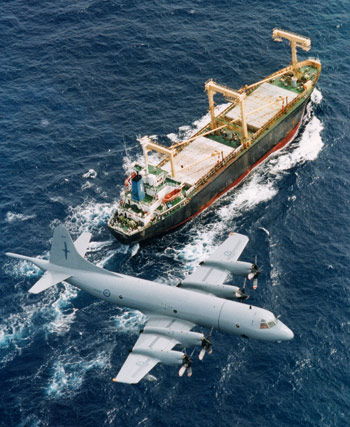He korero whakarapopoto
What is international law?
International law deals with relationships that go beyond the borders of any one country. It is used in situations such as:
- dealing with crimes in international waters
- regulating international travel
- regulating international trade
- deciding on boundaries between countries
- regulating the use of armed force
- regulating human rights.
International law applies to relationships between states, between states and individuals, and between individuals.
New Zealand’s involvement in international law
International laws are often made by international organisations. New Zealand’s involvement with international law increased as the country became more active on the world stage. New Zealand was a founding member of the League of Nations, which was set up after the First World War. Also in 1919, New Zealand became part of the new International Labour Organization, which sets rules about employment and labour matters.
New Zealand also became part of the United Nations (UN), which was founded after the Second World War. The UN has a range of international agencies that deal with and set rules around issues such as health, food, education, science, culture, aviation, trade and refugees.
In the second half of the 20th century New Zealand signed treaties and joined organisations to control nuclear weapons. Along with Australia, New Zealand took France to the International Court of Justice to challenge French testing of nuclear weapons in the Pacific.
International agreements are used to govern trade between countries. New Zealand is a member of the World Trade Organization and has signed free-trade agreements with several countries.
International law on human rights and conflict
An important role of international law is to protect human rights during both war and peace. The Geneva Conventions are rules that aim to protect civilians and other non-combatants (including wounded soldiers and prisoners of war) during armed conflicts. After wars, people who did not follow the conventions may be tried for war crimes in special courts or at the International Criminal Court.
International law also covers human rights during peacetime, and many international rules and treaties have been incorporated into New Zealand law.
International courts
There are a number of courts that deal with international disputes:
- the International Court of Justice (ICJ)
- the International Criminal Court (ICC)
- other international tribunals that are set up for specific purposes, such as to deal with war crimes in Rwanda or former Yugoslavia.
International law on travel, trade and resources
Other areas that international law covers include:
- international travel and immigration, including refugees
- international trade and disputes over trade
- the law of the sea, which includes rules around what happens in international waters, fishing, maritime accidents and the environment.





